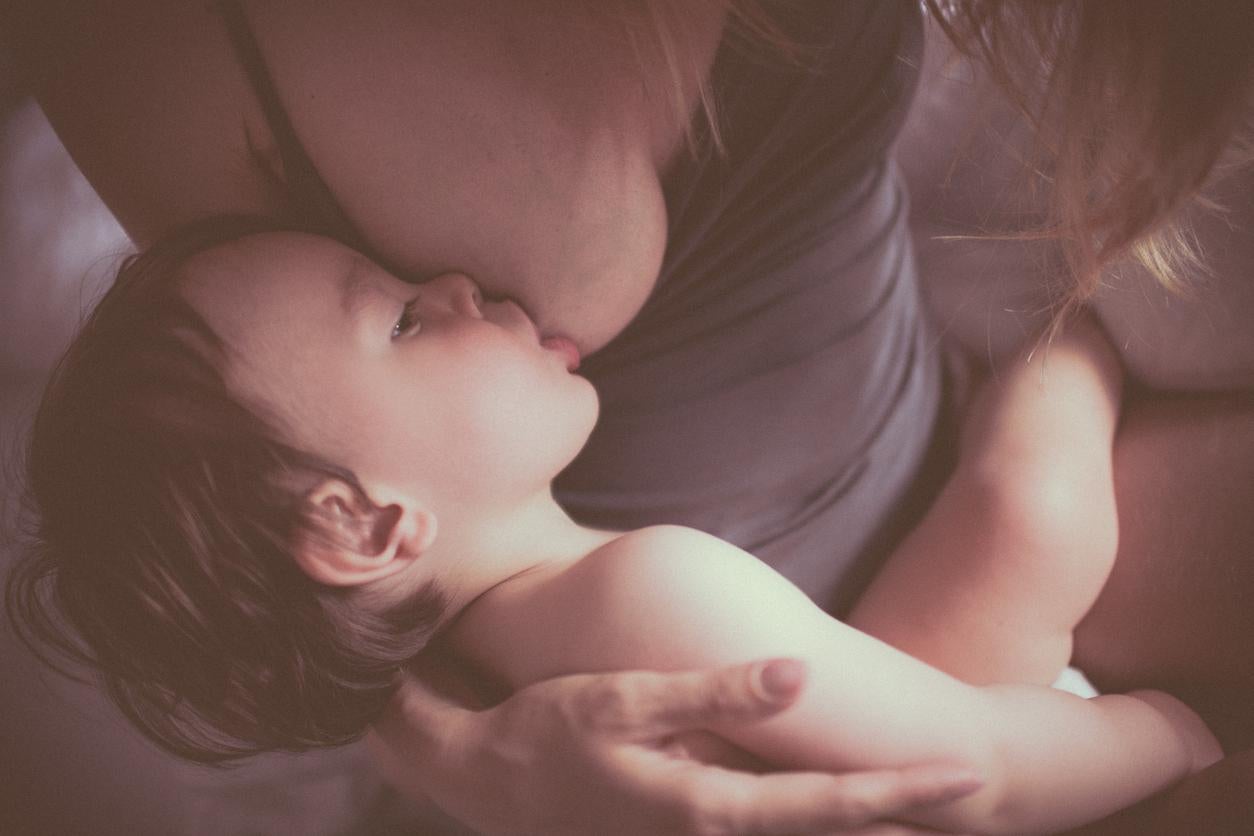We need to normalise breastfeeding beyond just the standard six months
Breastfeeding up to two years has widely reported benefits to the child, so we need to stop stigmatising mothers who choose to do so


Your support helps us to tell the story
From reproductive rights to climate change to Big Tech, The Independent is on the ground when the story is developing. Whether it's investigating the financials of Elon Musk's pro-Trump PAC or producing our latest documentary, 'The A Word', which shines a light on the American women fighting for reproductive rights, we know how important it is to parse out the facts from the messaging.
At such a critical moment in US history, we need reporters on the ground. Your donation allows us to keep sending journalists to speak to both sides of the story.
The Independent is trusted by Americans across the entire political spectrum. And unlike many other quality news outlets, we choose not to lock Americans out of our reporting and analysis with paywalls. We believe quality journalism should be available to everyone, paid for by those who can afford it.
Your support makes all the difference.I widened my eyes in shock as I caught my new friend’s gaze at antenatal class, when a mother came to talk to us about breastfeeding.
She had just revealed that she still breastfed her two-year-old, as well as her newborn. Afterwards, we all bonded over our discussion of how wrong and weird we all felt it was to carry on breastfeeding for such a long time.
Of course, if that’s what she wanted to do, that was her decision, but I certainly wouldn’t be doing the same. If they are old enough to ask for it, they are too old, was our thinking.
Now my baby is eight months old and I think back to my attitude at that class with shame. I was ignorant and judgemental. Who was I to decide that it is wrong to breastfeed a child once they reach a certain age, and where had this thinking come from?
As Breastfeeding Awareness Week draws to a close, more and more articles on the topic pop up across social media. What saddens me is the number of people, mostly other mothers, who share that same misinformed opinion as I did, but who think it is acceptable to post it all over their networks without bothering to find out the facts.
I knew I wanted to breastfeed my baby. It wasn’t the easiest of journeys to start with, and even now it has its problems – the appearance of teeth being one of them. But it has also been wonderful. I was upset at not being able to birth naturally after having an emergency cesarean section. I hadn’t even conceived naturally, having had IVF. So I was desperate for my body to do something right. It had failed to bring my son into the world without help, but now he was here it was vital to me that my body could keep him alive, and I was proud that I succeeded against the odds.
However, when he reached six months, lots of other mums with similarly-aged babies decided to stop breastfeeding and turn to formula. I wondered why this was the norm and if I should start thinking about stopping. I couldn’t imagine feeling ready to give it up any time soon, but knew there would come a time in the near future when I would have to. I didn’t want to be that woman whose son was still hanging off my breast at two years old.
I decided to research the matter, to find out when is the best time to stop, and was shocked but delighted to discover that the World Health Organisation (WHO) recommends breastfeeding until at least the age of two. At least. So why had I, and others, been so appalled when that brave mum spoke to us about breastfeeding her toddler?
The reason is because, in this country at least, this sadly isn’t the norm. Even those of us breastfeeding our babies past six months are in the minority. It isn’t seen as socially acceptable and those who do continue can feel isolated, uncomfortable and judged.
Breasts are seen as sexual rather than what they were designed for – to feed a baby or child. It’s rare to see women breastfeeding a baby in public, and often you hear of them being shamed or embarrassed for doing so. It’s no wonder so many women stop or don’t ever start in the first place.
Yet the benefits are clear and plentiful. Breastfed babies have a higher IQ, with the greatest gains for those who are breastfed the longest; breastfeeding protects against disease for as long as it continues; breastfed toddlers are found to have fewer illnesses of shorter duration and lower mortality rates; breastfed toddlers have been found to have improved social development; and breastfeeding helps a child achieve independence.
It also has many nutritional benefits, with WHO stating that it can provide half or more of a baby’s energy needs between six and 12 months, and one third between 12 and 24 months. You can’t argue with the facts.
So contrary to my belief that I would need to “give up” breastfeeding, as if it is some sort of self-indulgent guilty pleasure after a certain age, I can continue for as long as my son wants. And I intend to do just that.
I hope I have the confidence and bravery to speak out about it if my boy should want to carry on into his toddler years, just like that woman who spoke at the antenatal class. But I suspect I will keep quiet, knowing that attitudes and social judgement in this country will mean that many people will think I am doing something wrong. For that reason, sadly, I will continue to be in the minority, until attitudes and understanding change.
Join our commenting forum
Join thought-provoking conversations, follow other Independent readers and see their replies
Comments